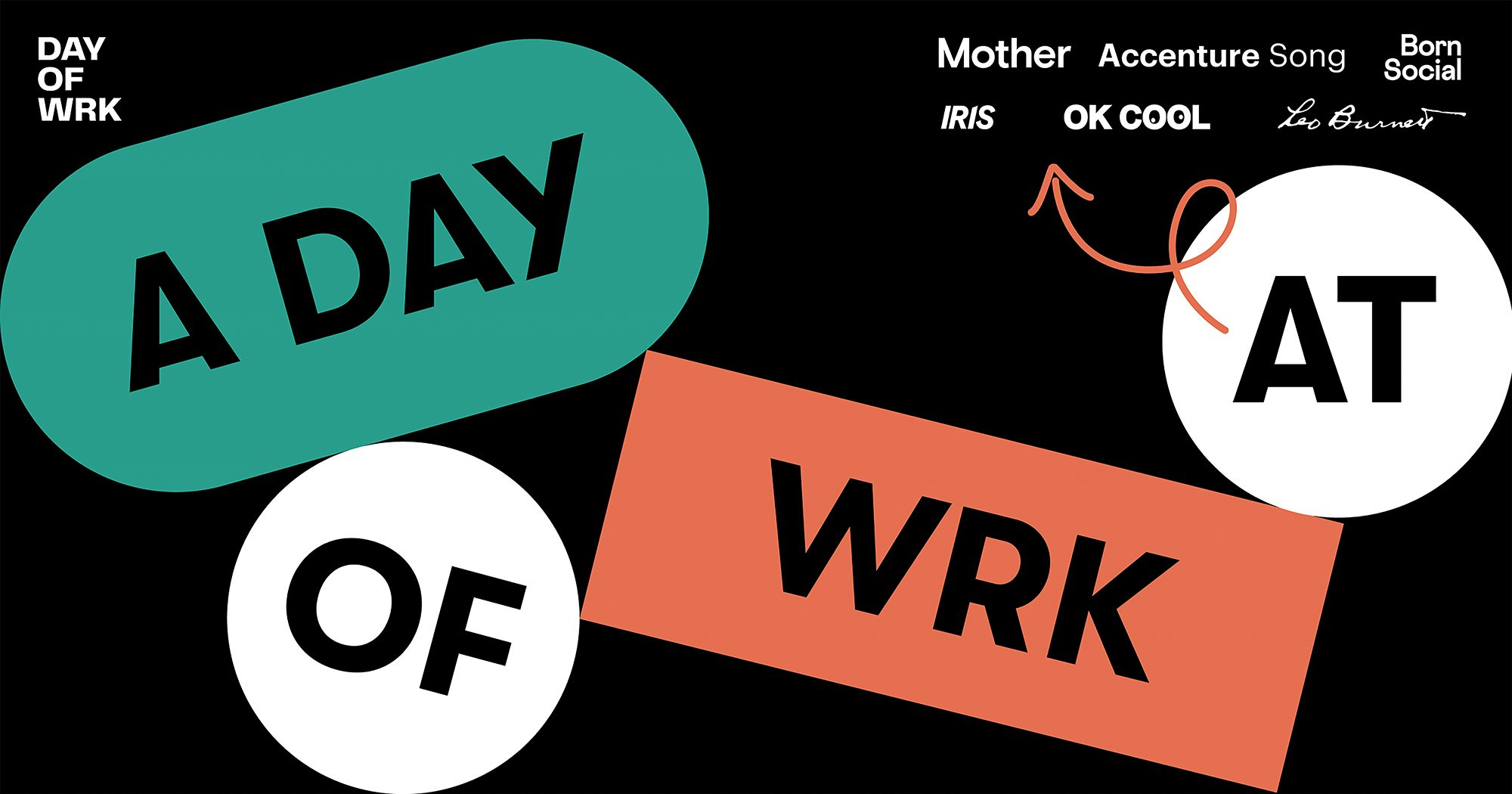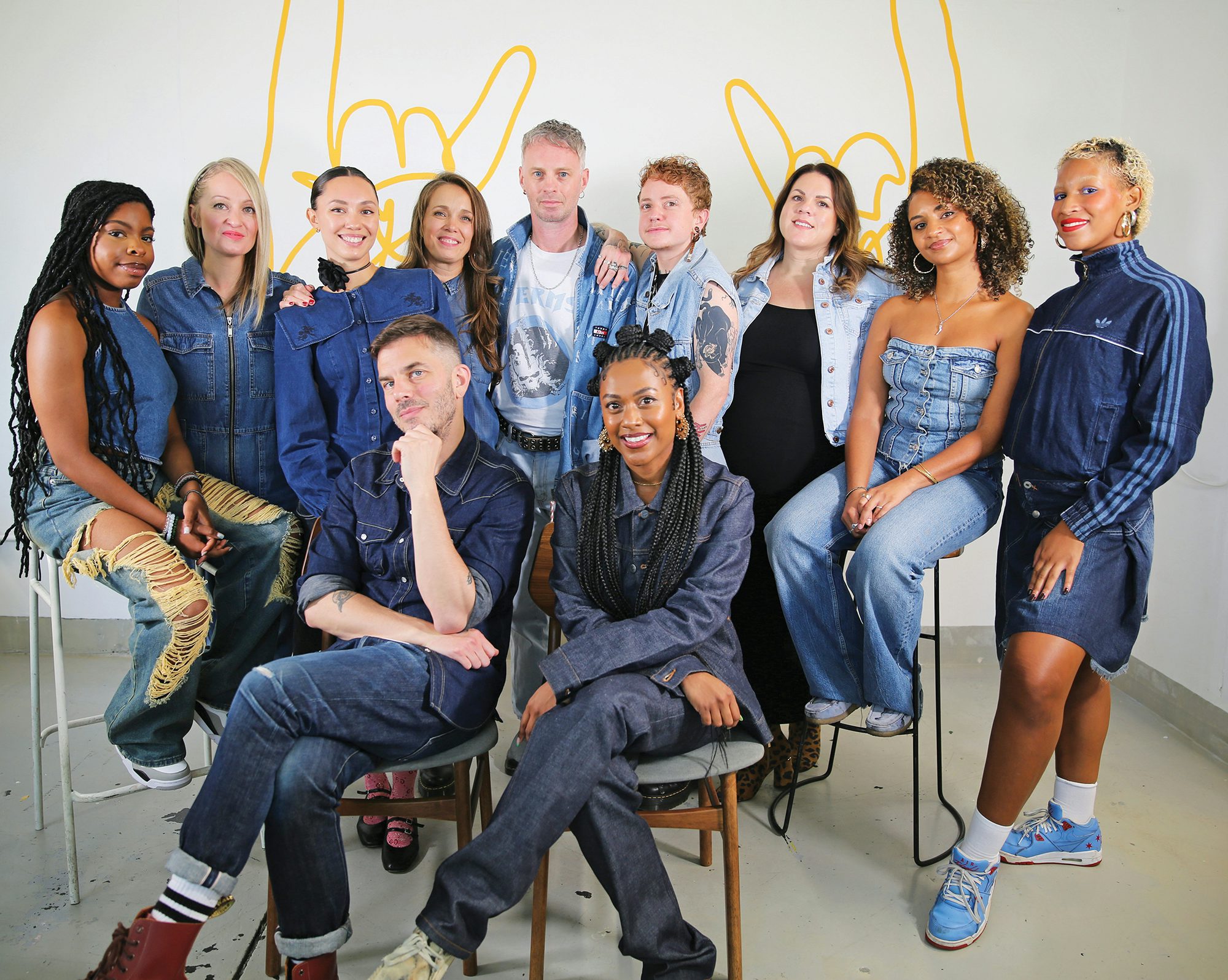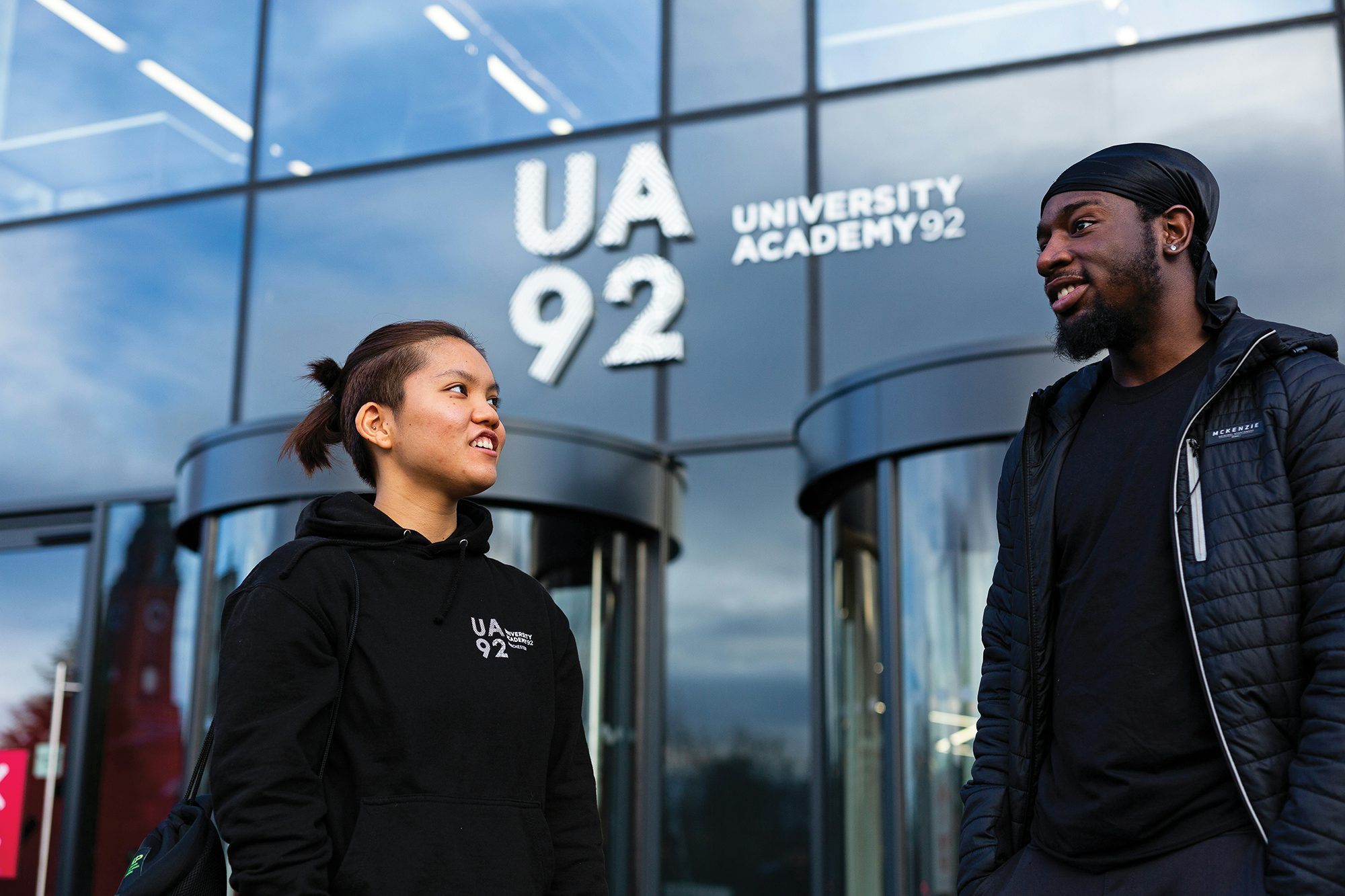How can the ad industry retain new talent?
As Gen Z navigate what they want from a career in advertising, the industry is starting to wake up to the fact that it needs young talent more than they need it
There’s been much discussion about how the next generation of talent will reshape working life in the coming years, whether you look at social-driven trends like ‘quiet quitting’, the rise of B Corp businesses, or the fractious debate around hybrid working. With Gen Z set to make up over a quarter of the global workforce by 2025, it’s something that employers are having to take increasingly seriously when it comes to attracting and retaining talent – whether they like it or not.
If the Advertising Association’s Investing in Our Talent’s Future report is anything to go by, the big existential questions around the future of work are just as pressing for advertising as any other industry. Released in 2023, the report revealed that the number of people working in marketing and advertising fell by 14% over the previous four years, with the body urging the industry to “stem talent loss and attract new people”.
It can be hard to see what’s wrong with the ad industry from the inside, but Soursop co-founder Ravi Amaratunga Hitchcock’s background in digital media and TV has given him a unique perspective on Gen Z’s rejection of conventional career paths. “I think young people have a lot of choice about what they want to do, and they have different perspectives on what work is and what it does,” he says. “I would say we work on the cool end of advertising, and we probably do more creative and cultural projects than most, but even a lot of the young people here are in and out. You can’t generalise a workforce at all, but there is an element of political awakening and latent anti-capitalism.”

While advertising traditionally benefitted from being able to offer better pay than other areas of the creative industries, the Advertising Association’s 2023 report suggests that salaries have not kept pace with the industry’s growth, dropping by 4% for junior roles and 10% for mid-weight roles between 2019 and 2022. Couple this with the uncertainty around AI’s impact on the industry, rising cost-of-living pressures, and the fact that, in the UK at least, the industry is still overwhelmingly based in London, where it’s increasingly challenging to survive on entry-level salaries, and it’s no surprise that young talent is looking elsewhere.
“In advertising there’s amazing career progression, the travel is incredible, and there’s the promise that you’ll get all that stuff later on. Maybe our opening salaries haven’t always been that competitive, and I think that was almost a counterbalance,” says McCann Manchester ECD Imogen Tazzyman. “But I’m not sure that is of interest to [new talent] now, and if we’re not paying the right amount of money to live on, they can see straight through that.”
There’s also the long-running debate about the industry’s accessibility, when so much potential talent still doesn’t know that advertising exists as a career option. This was certainly the case for Zakir Hasan, who says he was “so close to becoming a finance bro” before finding out about advertising through a university friend and landing his first job as a junior account exec in 2018. Now a content strategist at Mother London, he is also the founder of Day of Wrk, a platform that helps demystify the industry for young people, and particularly young people of colour.

“Normally when you get job specs, they’re really confusing, full of jargon, and people are put off applying because they don’t understand what they mean. The whole idea of Day of Wrk was that it would be a collection of day-in-the-life stories, but there’s an emphasis on detailed insights,” says Hasan. He has also started partnering with creative agencies including Mother and Born Social to create TikTok-style videos that are distributed alongside their junior-level job openings, featuring people already in those roles explaining what they involve day to day.
Hasan’s personal experience resonates with Calling managing director Rani Patel, who argues that young people need to be taught about the industry in a “less sanitised way”. Having co-founded Calling with a mission to create advertising that reflects a more modern audience, attracting a broad mix of talent is fundamental.
“I come from a working-class background, I’m an immigrant, I’m Black and I’m South Asian. The industry wasn’t designed for me to exist, let alone thrive in and be at the helm of an ad agency,” she says. “But it was only probably when I got a few years in that I realised … the nuances, and obviously being an immigrant, being working class, I felt micro-aggressions that others probably didn’t.”
Young people have a lot of choice about what they want to do, and they have different perspectives on what work is and what it does
For Tazzyman, the pandemic also exposed some of the industry’s flaws for what they really were. “There were a lot of agencies post-pandemic that had hidden low salaries and toxic work environments and cultures behind free pizza and a beer fridge on a Thursday. When all that got taken away and you’re left with just working really long hours, on my own, in my bedroom, with not enough money to live on, that has been a massive wake-up call,” she says.
For much of Gen Z, who have been dubbed the ‘sober curious’ generation, an agency culture that revolves around booze or enforced socialising is no longer normalised in the way that it often was pre-pandemic. “When I started out it was very much, we’re going to go for drinks, and I felt that I had to be at these events because it would look bad if I didn’t go. Whereas I feel like now there’s a much more accepted perception that you don’t have to show up at all these things,” says Hasan. At Mother, he’s part of the agency’s knitting club and one of the leaders of POC group Familiar Faces, which regularly organises non-drinking related activities such as games nights and book clubs.
Gen Z’s pushback against the long-hours culture that used to be commonplace in so many agencies is something Amaratunga Hitchcock believes can only be a good thing. “Boundary-setting [is something] you need to encourage, because when you’re young, you don’t always know that. I think there’s a real desire for that work/life balance, and I think we also need to question the ways we worked before, if they actually resulted in better work or just made more money on hours, and if we just did it because we could.”
@dayofwrk Want to know what people who work in creative agencies actually do? We got you covered ???? Dropping videos on all the different jobs over the next few months, let us know what job role you want to see explained ????
While putting this approach into practice is an ongoing challenge for a client service industry that’s so reliant on pitching, navigating busier periods comes down to having clear lines of communication between senior leaders and junior talent. “I think the biggest thing to avoid is people feeling like that’s the norm,” says Hasan. “The worst thing is if in your first or second year you’re working late and you’re like, it should always be like this, but it shouldn’t. I’ve definitely had moments where I felt like I was working too much, but it’s just making sure that I communicate that, and stuff gets resolved.”
Hybrid working has become another sticking point for the Gen Z workforce, and while there’s been a backlash among some bigger agencies and networks mandating a return to the office post-pandemic, Amaratunga Hitchcock believes that being able to offer flexibility gives smaller setups like Soursop an advantage in the pursuit of fresh talent.
“Sometimes you can’t pay a full-time salary the way that a network would, but [employees are] like, this is actually worth more than the money. I think it’s exciting for companies like us, and I think it’s terrifying if you’re a massive company at scale, because trying to organise something like that is chaos.”
There were a lot of agencies post-pandemic that had hidden low salaries and toxic work environments behind free pizza and a beer fridge
While Amaratunga Hitchcock acknowledges that it’s harder for younger talent to learn by osmosis if they’re not in the office, he adds that problems usually arise when agencies adopt one-size-fits-all workplace policies. “It’s complicated, because when you’re a younger member of staff, you’re not as self-sufficient. But people are choosing also to come into the office – it’s just on their terms.”
Alongside the inevitable challenges that come with attracting and retaining talent, there are also huge opportunities to reshape the ad industry for the better. Patel, for instance, makes the point that the explosion of brands on social in recent years has widened the aperture for people who previously wouldn’t have known about advertising as a career option. “I don’t think they have a massive preconception of advertising; I think they want to make stuff and they’re really into brands, because there are more brands than ever before for this generation. It’s so [much] a part of their lived experience,” she says.
There’s also a growing number of industry initiatives designed to open up the ad world, including Brixton Finishing School, D&AD Shift and Gary Neville’s ‘disruptor’ university, UA92, which is based in Salford and designed for students who wouldn’t normally see uni as a place for them. McCann Manchester is actively involved in UA92’s community, whether it’s putting on lectures or offering work experience placements and mentoring, and Tazzyman notes that the agency was also one of the first to launch a proper apprenticeship scheme back in 2011, which has so far taken on more than 40 people full time.

When it comes to retaining the next generation of talent, beyond non-negotiables such as working conditions and job security, one of the key motivating factors that often comes up is trust. “Not only feeling trusted to come up with ideas, but also having the trust that they’ll actually be listened to,” says Hasan. “At Mother, for example, we recently won a pitch for Duolingo UK, and I think that’s the best example of shifting away from a traditional way of working. The pitch team was me, Mother’s head of content and two junior creatives. I remember suggesting things that no one else understood, but because they trusted us, we could then present that to the client.”
At Calling, Patel has also prioritised finding “small windows of opportunity” for junior members of the team to own something for themselves. When they moved into their first proper studio in Peckham, for instance, she tasked one of their junior creatives with organising a photoshoot for the team which involved managing a budget and art directing the shoot. “I think it’s really important that young people are given opportunities where they’re able to see things to fruition – as big or as small as it is. And actually what I’ve found with the team is that because I’ve trusted them, they feel this responsibility.”
And while it can be easy to get caught up in generational divides, Tazzyman argues that recognising the positive changes that Gen Z is already bringing to the workplace will ultimately benefit the ad industry in the long run. “I think this is the first time that we need them more than they need us,” she says. “Increasingly when I’m doing interviews, I feel like I’m selling the job, selling the agency, selling the industry more than the person being interviewed is selling themselves, which is quite exciting, in a way. So I think we just need to look at what drives them as a generation and adapt to that.”
sour-sop.com; mccannmanchester.com; motherlondon.com; calling.studio




